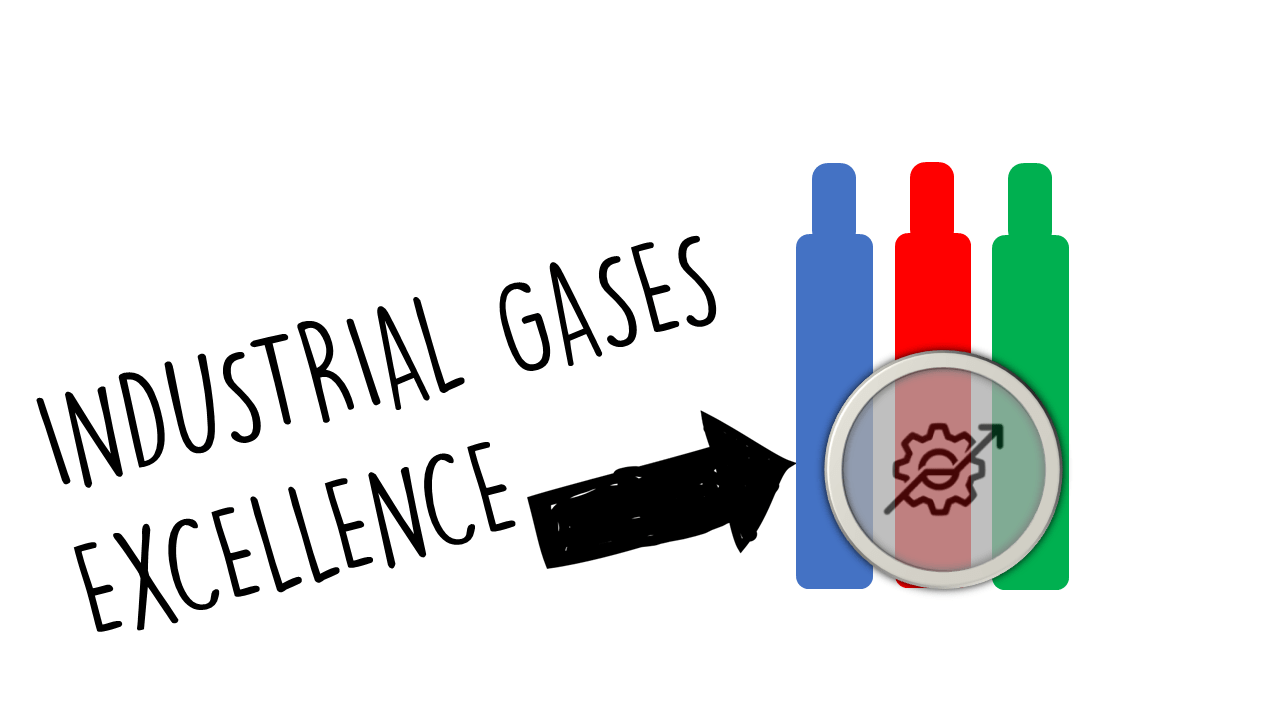The Total Gas Manager (TGM) is a comprehensive, strategic approach for managing industrial gases within an organization. It encompasses the complete lifecycle of gas utilization, from procurement and storage to delivery and consumption, ensuring optimal efficiency, safety, and cost-effectiveness.
The TGM focuses on minimizing waste, reducing environmental impact, and enhancing operational performance through innovative technologies and practices.
Framing
In framing the Total Gas Manager concept, it is essential to consider several key aspects:
- Strategic Alignment: Aligning gas management practices with the organization’s overall goals and sustainability objectives.
- Lifecycle Management: Addressing every aspect of gas use, including sourcing, logistics, storage, consumption, and waste management.
- Stakeholder Engagement: Collaborating with suppliers, customers, and regulatory bodies to ensure a comprehensive approach.
- Data-Driven Decisions: Utilizing data analytics for real-time tracking, forecasting, and performance monitoring of gas usage.
Re-Framing
Re-framing the Total Gas Manager involves redefining its components to adapt to emerging trends and technologies. Key areas to consider include:
- Digital Transformation: Incorporating IoT and AI technologies to optimize gas flow, predict needs, and enhance safety measures.
- Sustainability Focus: Focusing on reducing carbon footprints and promoting alternative fuels and technologies.
- Agility and Flexibility: Developing a responsive supply chain that can adapt to market changes and emergencies.
- Safety and Compliance: Re-evaluating safety protocols and compliance measures with current regulations and best practices.
Actions
To implement an effective Total Gas Management strategy, organizations should take the following actions:
- Conduct an Audit: Assess current gas usage, logistics, and safety practices to identify areas of improvement.
- Set Clear Objectives: Define measurable goals for efficiency, safety, cost reduction, and sustainability.
- Invest in Technology: Adopt modern technologies like smart meters, telemetry systems, and predictive analytics for better management of gas supplies.
- Employee Training: Ensure that all personnel are trained in gas management best practices and safety protocols.
- Collaborate with Experts: Work with industrial gas suppliers and consultants to optimize systems and practices.
- Monitor Performance: Implement KPIs to regularly assess performance against objectives and adjust strategies accordingly.
Case Studies
Case Study 1: Global Manufacturing Corporation
- Challenge: High operational costs and inefficient gas usage.
- Implementation: Conducted an audit that revealed overconsumption during peak hours; implemented predictive maintenance and overtime energy use analytics.
- Outcome: Achieved a 20% reduction in gas costs and improved supply chain reliability through better scheduling and gas management practices.
Case Study 2: Chemical Processing Plant
- Challenge: Environmental regulations and sustainability targets.
- Implementation: Transitioned to greener alternatives and improved gas recycling methods by investing in alternative technologies.
- Outcome: Reduced carbon emissions by 30% and received recognition for sustainability leadership in the industry.
Case Study 3: Hospital System
- Challenge: Managing multiple gas types across various facilities with different regulations.
- Implementation: Integrated a centralized gas management system that allowed for real-time tracking and compliance checks.
- Outcome: Enhanced safety, reduced gas supply costs by 15%, and improved patient safety through better management of critical gas supplies.
Conclusion
The Total Gas Manager (TGM) represents a proactive and holistic approach to managing industrial gases.
By framing and re-framing the TGM concept to integrate modern technologies and sustainability goals, organizations can significantly improve efficiency, reduce costs, and enhance safety.
The implementation of strategic actions, exemplified by real-world case studies, demonstrates the potential for substantial gains in operational excellence in the management of industrial gases. Organizations should prioritize developing a robust Total Gas Management strategy to navigate future challenges and opportunities in this evolving landscape.





